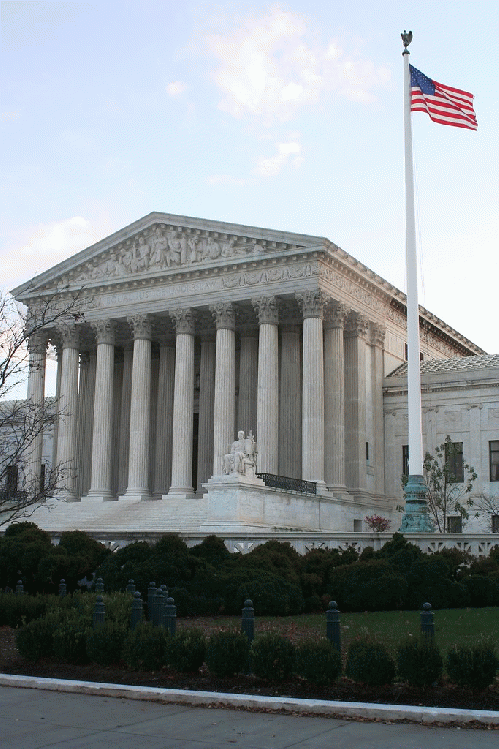From Truthout
When veteran Minnesota police officer Kimberly Potter, who is white, stopped Daunte Wright, a 20-year-old Black man, for an expired registration tag, she committed an act of racial profiling. As a result, Wright's blood is on the hands not only of Potter but also of the U.S. Supreme Court, which has legally sanctioned this type of racial profiling.
Like Derek Chauvin, who is on trial for killing George Floyd, Potter is not an exception to the rule. Both are typical representatives of a system of racist, violent law enforcement against Black people. When Potter shot and killed Wright, her act whether intentional or accidental was also grounded in the same sort of racism manifested by officers throughout the United States.
Potter killed Wright quickly, unlike Chauvin, who tortured Floyd to death over a period of nine minutes and 29 seconds. After she stopped Wright, Potter found he had a warrant out for his arrest for a misdemeanor. When the officers tried to arrest him, Wright pulled away to get back in the car. Potter pointed her gun at Wright, threatened to taser him and then shot him. The over-reaction of both Potter and Chauvin to relatively minor offenses led to the murders of two unarmed Black men. "Why, when you stop people of color, [do] you automatically draw a weapon?" asked Pastor Ezra Fagge'Tt, an eyewitness to Wright's death.
Pretext Traffic Stops Enable Racial Profiling
Although Potter may have had probable cause to believe that Wright committed a minor traffic infraction, her decision to stop him was also the result of racial profiling.
In 1996, Antonin Scalia wrote an opinion for a unanimous Supreme Court that legalized racial profiling during traffic stops. The Court authorized pretext stops in Whren v. United States. That means officers can stop cars and temporarily detain motorists on the pretext of enforcing traffic laws, even if a reasonable officer would not have stopped the driver absent some additional law enforcement objective.
Even if they are subjectively motivated by racism, officers can stop a car as long as they have probable cause to believe the driver committed a traffic infraction. Whren permits "reasonable" law enforcement objectives to serve as a pretextual justification for subjective suspicion on the basis of race. Pretext stops foster racial profiling, and ultimately, the use of violence against Black people.
More than a quarter of police killings in 2018 occurred during traffic stops, according to a study conducted by National Public Radio. Officers' use of force is not proportionate to the level of risk they're faced with during these traffic stops.
Legal scholar Jordan Blair Woods found that "the rate for a felonious killing of an officer during a routine traffic stop was only one in every 6.5 million stops." Likewise, the rate for an assault resulting in serious injury to an officer was just one in every 361,111 stops. Yet Black men were killed at a rate of 31.17 per every 1 million stops, a report by ProPublica concluded.
Tasers Can Also Kill PeoplePotter is claiming that she intended to reach for her Taser but accidentally grabbed her gun instead. Before shooting Wright, Potter screamed, "Taser!" Even if Potter did intend to taser Wright, that still would have amounted to the use of excessive force.
Tasers are electrical weapons that "deliver pulses of electrical charge that cause the subject's muscles to contract in an uncoordinated way, thereby preventing purposeful movement. This effect has been termed 'neuromuscular incapacitation,'" according to the 2020 UN Guidance on Less-Lethal Weapons in Law Enforcement. "The charge is delivered through metal probes that are fired towards the subject but which remain electrically connected to the device by fine wires."
(Note: You can view every article as one long page if you sign up as an Advocate Member, or higher).






